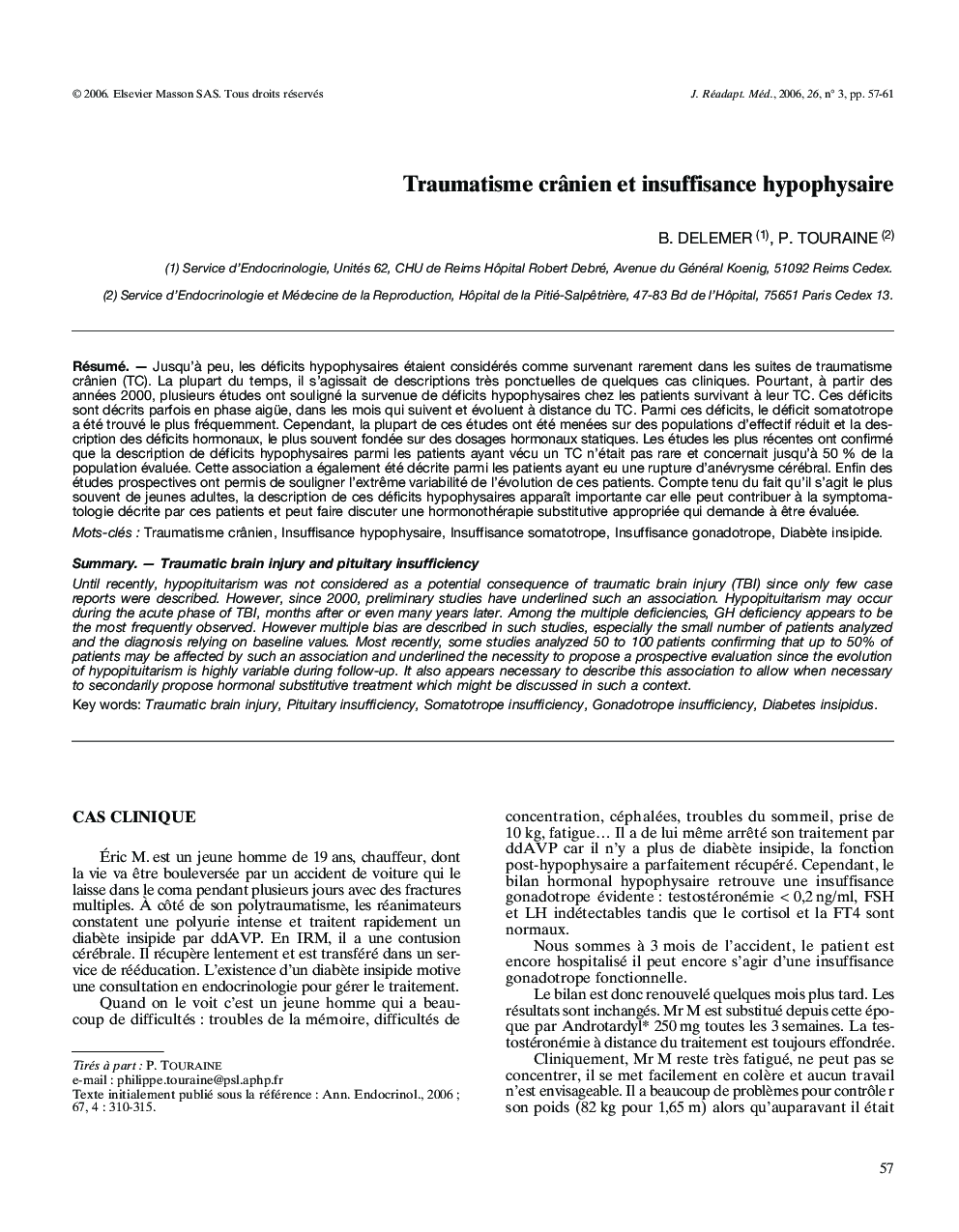| Article ID | Journal | Published Year | Pages | File Type |
|---|---|---|---|---|
| 2700508 | Journal de Réadaptation Médicale : Pratique et Formation en Médecine Physique et de Réadaptation | 2006 | 6 Pages |
Abstract
Until recently, hypopituitarism was not considered as a potential consequence of traumatic brain injury (TBI) since only few case reports were described. However, since 2000, preliminary studies have underlined such an association. Hypopituitarism may occur during the acute phase of TBI, months after or even many years later. Among the multiple deficiencies, GH deficiency appears to be the most frequently observed. However multiple bias are described in such studies, especially the small number of patients analyzed and the diagnosis relying on baseline values. Most recently, some studies analyzed 50 to 100 patients confirming that up to 50% of patients may be affected by such an association and underlined the necessity to propose a prospective evaluation since the evolution of hypopituitarism is highly variable during follow-up. It also appears necessary to describe this association to allow when necessary to secondarily propose hormonal substitutive treatment which might be discussed in such a context.
Keywords
Related Topics
Health Sciences
Medicine and Dentistry
Orthopedics, Sports Medicine and Rehabilitation
Authors
B. Delemer, P. Touraine,
